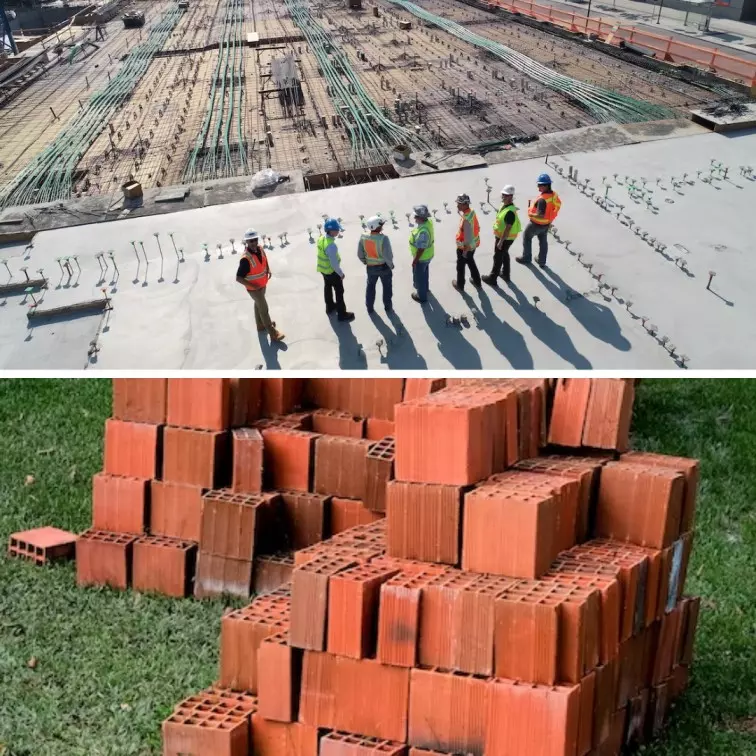Sustainable Infrastructure! In A First, Vizag Startup Releases EPD For Carbon-Negative Construction Bricks
Writer: Deepthi Rao
She is a postgraduate student pursuing Multimedia Journalism at Christ Deemed to be University. She believes in the power of storytelling and truth. "Do it with passion or not at all."
Andhra Pradesh, 11 Dec 2022 11:27 AM GMT
Editor : Jayali Wavhal |
She writes about gender issues, human interest, and environment.
Creatives : Jayali Wavhal
She writes about gender issues, human interest, and environment.
Agrocrete, a carbon-negative brick, has the potential to replace ordinary bricks and reduce building costs by up to 50 per cent and operating expenses by 30 per cent.
The Visakhapatnam startup company, GreenJams, claims to be the first in the world to issue an environmental products declaration (EPD) for its carbon-negative building blocks. It manufactures Agrocrete, a carbon-negative construction block from crop residues like paddy straw, cotton stalks, bagasse, and industrial byproducts.
Carbon-Negative Bricks For Building
Agrocrete, a carbon-negative brick, has the potential to replace ordinary bricks and reduce building costs by up to 50 per cent and operating expenses by 30 per cent, according to GreenJams. The firm provides several block sizes from 4 to 9 inches in length, with prices ranging from ₹26 to ₹55 per block. It may be moulded into numerous forms and shapes, such as blocks, tiles, ornamental plaster, etc.
According to the EPD, Agrocrete has an embodied carbon of -0.14 kg Co2/kg, which means that each metric tonne of the material absorbs 140 kg of carbon dioxide. The carbon dioxide trapped within the blocks does not escape into the atmosphere even at the end of its life, maintaining its carbon-negative qualities almost forever, reported The Times of India.
The CEO and founder of GreenJams, Tarun Jami, called the EPD publishing a turning point for the international and Indian building industries. He said that the market now has access to a validated carbon-negative building block for the first time. Through Agrocrete, the startup has discovered a brand-new, enormously scalable, and incredibly affordable technique for carbon capture that benefits the most crucial beneficiaries - the farmers, said Jami.
Road Ahead
GreenJams is a component of the Andhra University Incubation Ecosystem and operates a plant in Meerut, Uttar Pradesh, with a capacity of 2,000 blocks per day. A factory in Hyderabad will open in the next three months, while one in Visakhapatnam has a daily capacity of 3,000 blocks. The firm, whose largest customer is ITC Ltd, is also working on orders for residential, commercial, and industrial projects from Roorkee, Rishikesh, Surajgarh, Chennai, Meerut, Kapurthala, and New Delhi.
Jami explained that 900 million cubic metres of Agrocrete may be produced annually, which would allow for the collection of about 100 million tonnes of CO2 and reduce 350 million tonnes of CO2 emissions. By utilising this brick in its project at Kapurthala this year, ITC Limited collected 38.5 tonnes of CO2 and prevented 144 tonnes of CO2 emissions, he claimed.
 All section
All section














